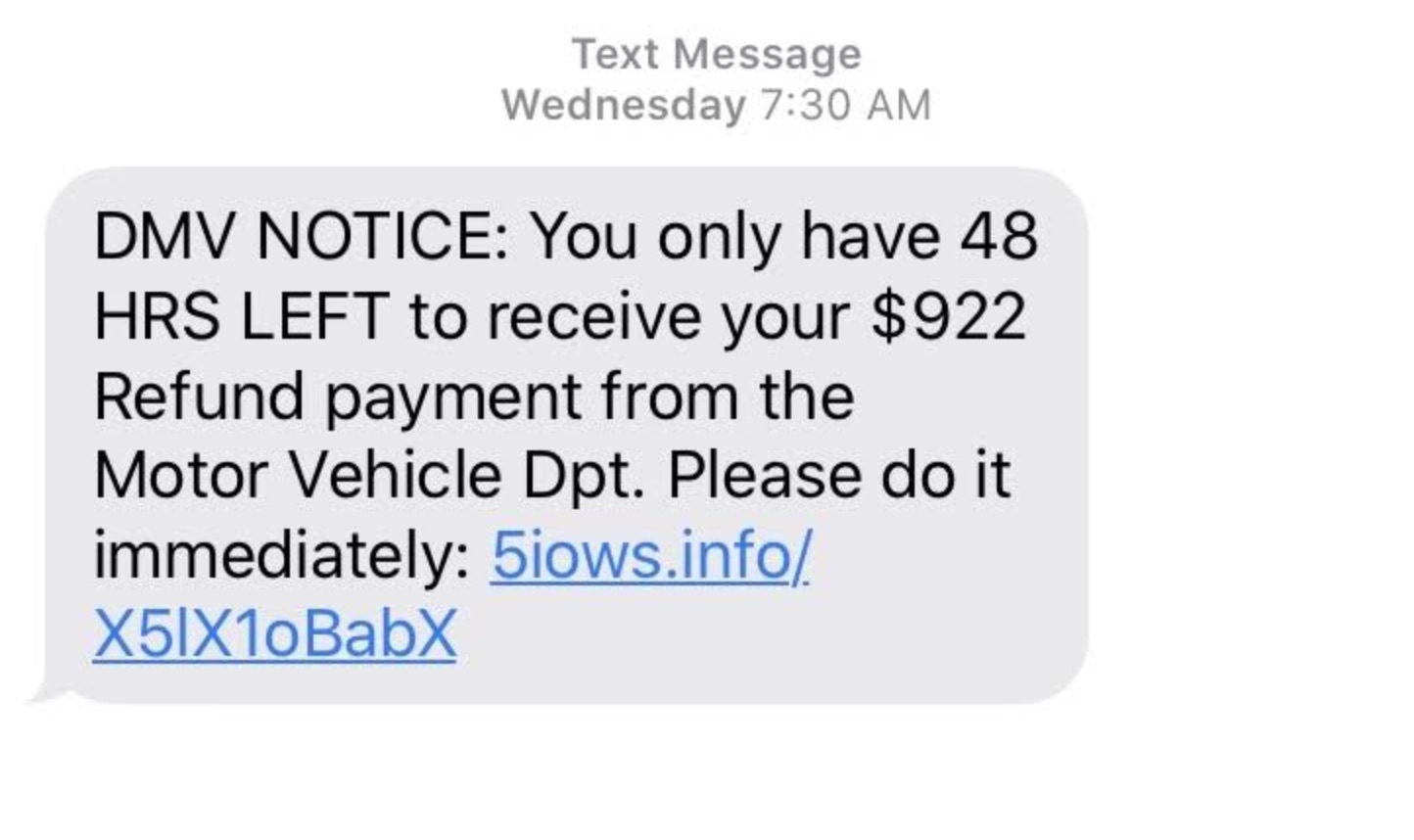No, the DMV Doesn’t Really Owe You $922
Text Messages the Latest Scammers' Landscape

The scammers who telephone unsuspecting consumers and sweet-talk or menace money out of them have turned to text messages to retrieve personal or credit card information, which themselves have a lucrative resale value.
Recent messages received by Santa Barbarans say the Department of Motor Vehicles has their $922 refund, or that the U.S. Postal Service or FedEx has their package, or that the Employment Development Department needs some information to send that check, or that Netflix has a free year’s subscription for you — but by pressing the blue link in the text, the consumer is instead connected to scammers just “phishing” for information or cash.
“This is absolutely the latest scam going on,” said Sergeant Ethan Ragsdale of the Santa Barbara Police Department. The thieves are after credit card information most often, he said, and they pretend a refund is coming, or that the account needs to be charged, and that they need the credit card information to give a “refund” or to “cancel payment.”
Sign up for Indy Today to receive fresh news from Independent.com, in your inbox, every morning.
The solution so far is to ignore or delete the message, and to never give personal information over the phone. “Scammers can’t get information unless you give it to them,” the Netflix website advises. It further states the company would never request personal information like credit or debit card numbers, bank account details, or Netflix passwords in a text or an email. Changing a password immediately is the solution if you gave that out, as well as notifying your financial institution if you gave up payment information.
Netflix has an email address at which consumers may report the fraud, as do the Postal Service , the EDD, and Federal Express, which also goes on to define other scams like “smishing” (which launches malicious software in a text message), spearphishing (which targets a company), and vishing (a phoned request to call another number).
Any city resident who’s been scammed out of money may report it to the S.B. Police Department, which recently worked with the U.S. Secret Service on a fraudulent money transfer to Thailand that would have cost a 90-year-old woman $50,000 if it had been successful. The website IdentityTheft.gov also has a step-by-step process to report such crimes to the Federal Trade Commission and information on protecting against further losses by closing credit card accounts and reviewing statements carefully.
Support the Santa Barbara Independent through a long-term or a single contribution.



